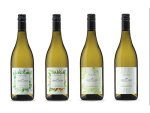New Zealand scored a landmark victory over Canada, stopping it from protecting its dairy industry and effectively blocking our dairy exports to that country.
It's estimated that would have cost the NZ dairy sector $120 million over three years.
Both countries are members of the CPTPP (Comprehensive and Progressive Agreement for Trans-Pacific Partnerships) - the free trade agreement between Australia, Brunei Darusalam, Canada, Chile, Japan, Malaysia, Mexico, New Zealand, Peru, Singapore and Vietnam.
Under its rules all countries are obliged to allow access to each other's markets. But Canada has been illegally manipulating what is known as TRQs or Trade Rate Quotas to protect their own domestic dairy industry and block imports.
Since the inception of CPTPP, NZ has strongly opposed the Canadian interpretation of the TRQs but efforts by officials and politicians have failed to get Canada to budge from its protectionist actions. In the end, NZ through the Ministry of Foreign Affairs and Trade laid a formal complaint against Canada under the CPTPP rules and that hearing took place in Ottawa in June. Also supporting the NZ case was DCANZ - which represents most of NZ's dairy companies - and three Canadian importers of dairy products. Australia also supported the case.
A panel of three people were appointed to hear the case and, late last week, released their verdict in favour of NZ. This is the first case taken against a member of the CPTPP and the first case NZ has taken against a country with whom it has an FTA.
MFAT's deputy secretary trade and economic Vangelis Vitalis says NZ dairy exporters have not been able to benefit fully from the market access that was agreed under the CTPP. He says Canadian importers interested in buying NZ product have been unable to access quota. He says the CTPP rules exist to address situations exactly like this.
“Putting it frankly, Canada’s approach to administering its dairy quotas is protectionist and undermines the market access agreed between CPTPP Parties,” Vitalis told Rural News.
“The panel made it clear that all importers must have the opportunity to utilise Canada’s TRQs fully and that Canada is not allowed to use administrative complexity to prevent importers accessing quota.”
He says Canada must comply with the outcome and must not simply ‘recraft’ its approach.
It’s understood that Canada will comply with the decision of the panel, but exactly when this will happen is unknown. Canada has, at most, 15 months to comply with the decision but might string this out as long as it can to appease local dairy farmers.
Trade and Export Growth Damien O’Connor welcomed the CPTPP Panel’s ruling saying it’s a significant win for NZ primary sector exporters.
He says Canada was not living up to its commitments under CPTPP, by effectively blocking access for our dairy industry to upscale its exports.
“That will now have to change,” he says.
Canada's Dairy Sector
Dairy farming is said to be one of the largest agricultural sectors in Canada.
The industry has a significant presence in seven of the country’s ten provinces. Dairy farmers make up about 8% of all farmers in Canada.
Compared to NZ, the Canadian dairy industry is small. There are just 1.3 million cows – NZ has nearly 5 million. There are 9739 dairy farms in Canada and the average herd size is 89. NZ has 11,000 dairy cows with an average herd size of 440 cows.
On average two thirds of the milk produced in Canada is liquid milk and rest processed into butter and cheese. In 2022, Canadian dairy exports were worth $600 million; in the same year NZ dairy exports were close to $22 billion and this year are expected to be around $25 billion.



















